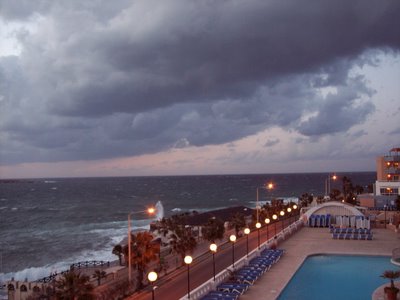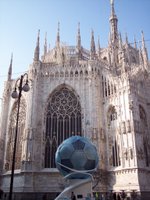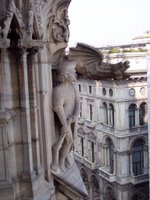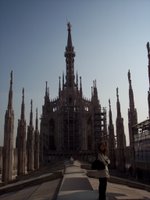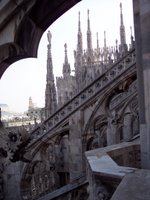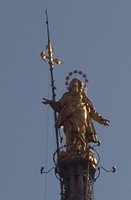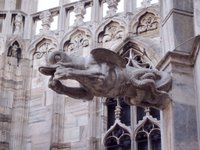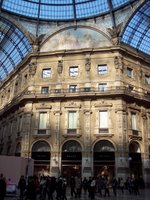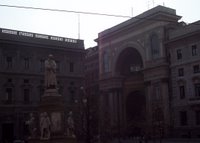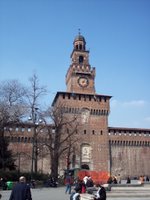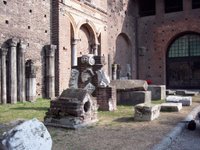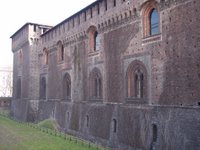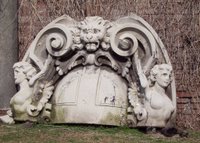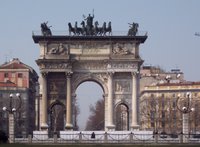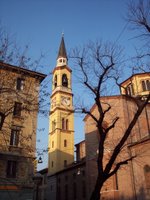
Arrived in Malta last night, hotel is ok, although full of tourists – mainly oldies off on a “Discover Malta” adventure.
I bet they don’t make Campbells Cream of Chicken Soup like they do back home! hehe
Anyway off early this morning on one of the amazing buses. Most of the buses on the island are beautifully restored old Bedfords and the like from the 50’s and 60’s. They are pretty amazing but the suspension is what you would expect and they belch the most god-awful diesel fumes! However they are a relatively cheap and regular mode of transport so what the heck!
First stop was the Tarxien (Tarsheen) Temples. When I was dropped off by the bus I couldn’t find where they were, so asked a local walking down the street. When she heard my accent she asked where I was from, and then told me that her son lived in Melbourne, in Sunshine! Small world hey! The Tarxien Temples were excavated in 1914, and are thought to date from between 3600 and 2500BC. The carving decorations were pretty impressive, as was the large stone statue that is thought to be of a broad hipped woman – perhaps representing fertility – but then of course this is all pre-history and so supposition. However given the dates of building they are very impressive.
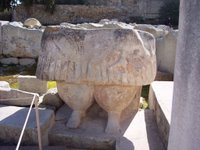
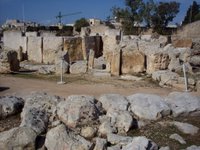 .
.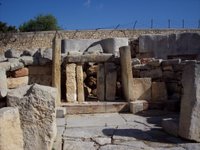
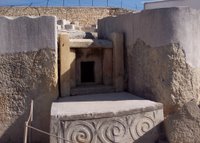

Second stop for the day was the Hal Saflieni Hypogeum. It’s an underground necropolis, consisting of halls, chambers, passages and a temple, constructed 4000BC or before. When it was excavated after 1902, they found the remains of some 7000 bodies interred there. It’s pretty mind-boggling to try and imagine how people of that era could have cut rock down to 10m below street level and formed such amazing chambers. The walls and ceilings of many of the areas are smoothed, and there are niches cut for the bodies to be interred. The temple has an alter, and a corbelled ceiling, which means it’s carved to look like you’re looking up at the ceiling in a church.. sort of. One of the most fascinating things I thought was that at the equinoxes the light comes in through one doorway and filters down through three others into the innermost sanctum of the temple, about 10m below the original ground level. It’s all now a world heritage site, and access is limited as too many people breathing out carbon dioxide have already irreparably damaged some of the paintings inside. So no photos, but there are heaps on the Heritage Malta web site.
After this I caught a bus back to Valletta, then another to the walled city of Mdina. Around 1000BC the Phoenicians built a protective wall around the settlement here. The Romans built a large town in the same place, but it was given its present name when the Arabs arrived in the 9th century – madina is Arabic for walled city. No cars are allowed inside the walls so it’s very quiet, and the Maltese are doing their best to return it to its history – removing overhead wiring, repaving in the style of the time etc. It’s very impressive, and very quiet!
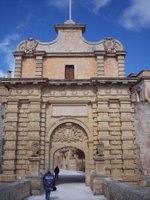
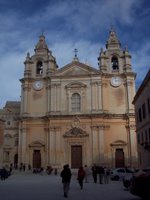
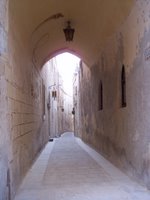

There’s an order of nuns that live in here whose members live in strict seclusion. No man can enter the buildings, and the sisters are not allowed to leave – even when they die they are buried within the walls of the convent. Next door to the nunnery is St Agatha’s Chapel, which was built in the early 15th century. St Ag was a 3rd century Christian martyr from Sicily who fled to Malta to escape the amorous advances of the Sicilian governor. When she returned to Sicily she was imprisoned and tortured, and her breasts were cut off with shears. She was then burnt at the stake. Bet that story keeps the nuns in their place! This is the view from the walls of Mdina over Valletta.

OK another busy day done – one more day of rest and then the TIMSS meeting starts, so all hands on decks for the next week!
